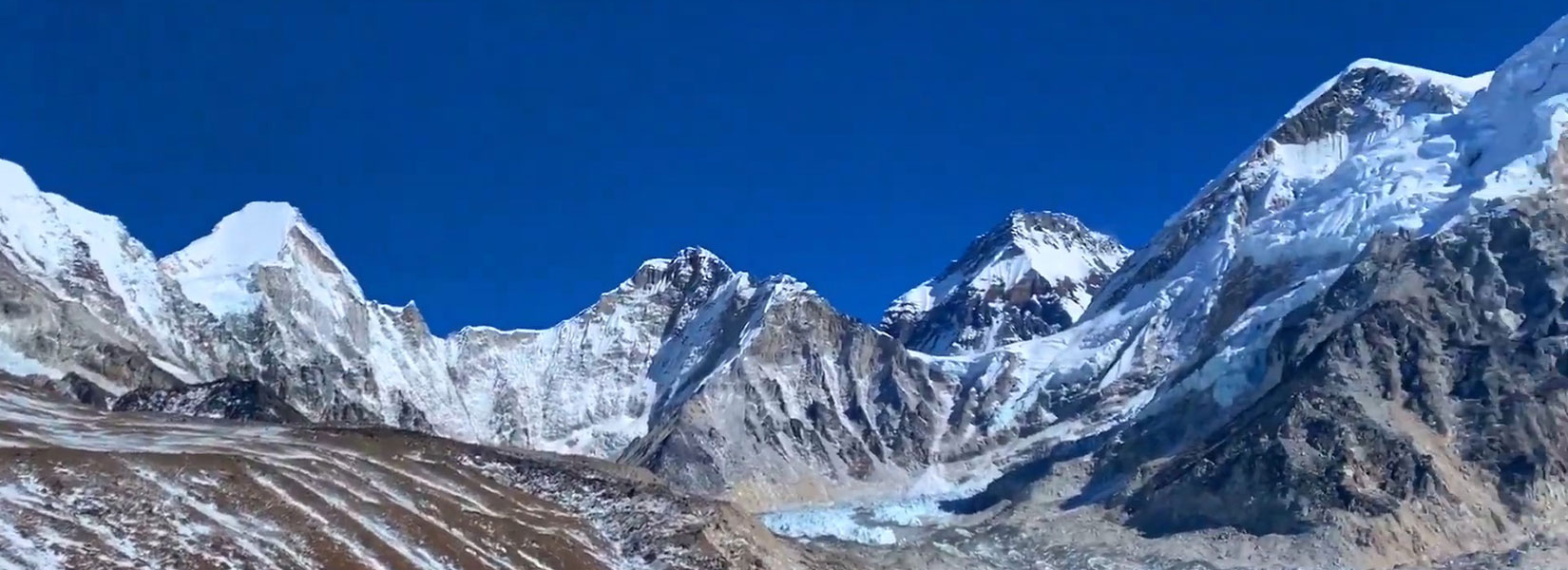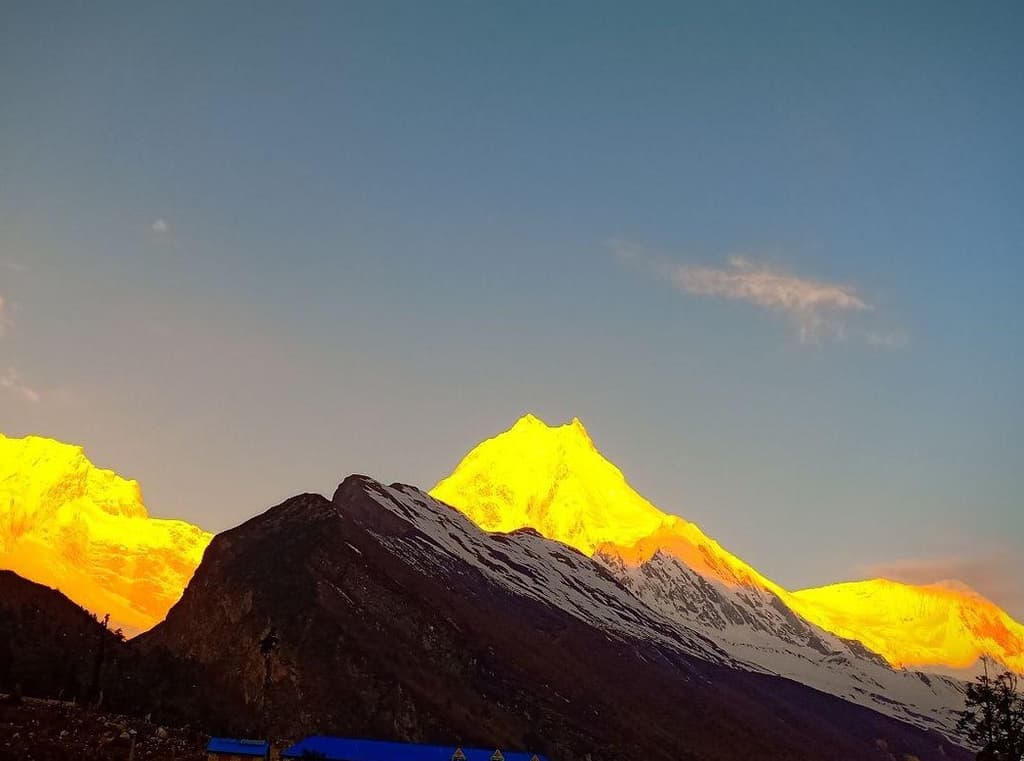The Everest Base Camp trek that explores the heart of the Himalayas is certainly the most popular and adventurous trekking expedition in the world. Well known for its scenic route, natural allurements, fascinating culture & traditions, warm hospitality of locals, and religious significance, this adventure to the foothills of the highest snow peaked wonder in the world, Mt. Everest (8,849 meters), is a mix of natural and cultural exploration. Travelers often wonder about the Everest Base Camp Trek age limit, as this information helps seniors, families, and younger adventurers plan their journey safely and comfortably.
This glorious expedition of the Khumbu region is a dream of many trekking enthusiasts, regardless of their gender or age; if you are wondering whether you fall under the permitted age margin for this once-in-a-lifetime experience.
there is no official age restrictions in Everest Base Camp, but it is recommended that the base camp trek will be overboard for children below the age of 8-10. Similarly, the elderly, who are 60+, need to have good physicality and no medical condition to partake in this glorious adventure to the Himalayas.
Recommended Age for the Everest Base Camp Trek
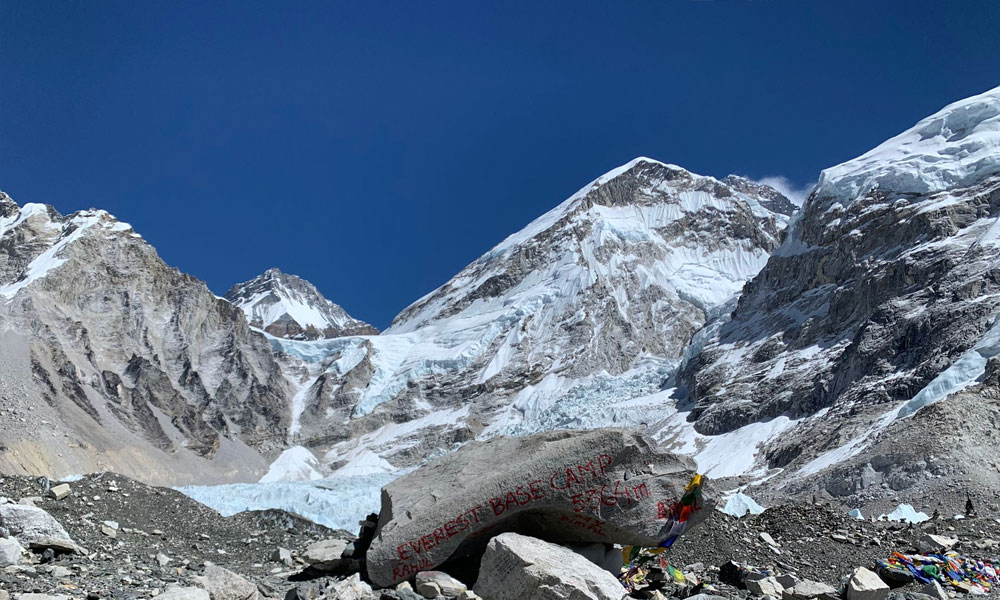
Although there isn’t any age restriction for the Everest Base Camp trek, and in the past, both children as young as 7 years old and elderly as old as 70 years old have completed this trek. There are still a few things to consider before your adventure on this route that has been graded as a ‘moderately-difficult’ level.
For Young Trekking Enthusiasts
Although children as young as seven years old have successfully completed this trekking adventure in the past, you still need to be careful if you are bringing kids below 8–10 years of age. The minimum age for Everest Base Camp trek is generally recommended at 8–10 years due to the high-altitude challenges. The Everest Base Camp, at an altitude of 5,364 meters from sea level is the highest base camp in the world; this high-altitude adventure is difficult for even adults. So, if you are tagging along with the kids, you need to be especially careful and consider their physical fitness level and age.
If the children are not able to identify the symptoms of altitude sickness and properly communicate about it with their parents, it can be particularly dangerous in such situations. So, it is important to analyze your kid’s physical fitness level and whether or not they can assess the situation and properly communicate any inconveniences.
Even for slightly older children in their early teen years, hiring a porter to carry their baggage and equipment will be safer. As the long treks on rough terrains are harsh on everybody, carrying excessive luggage for a long period can be really draining for children.
And you do not want to wear yourself out by adding their carry-ons on top of your luggage.
For Elderly Trekkers
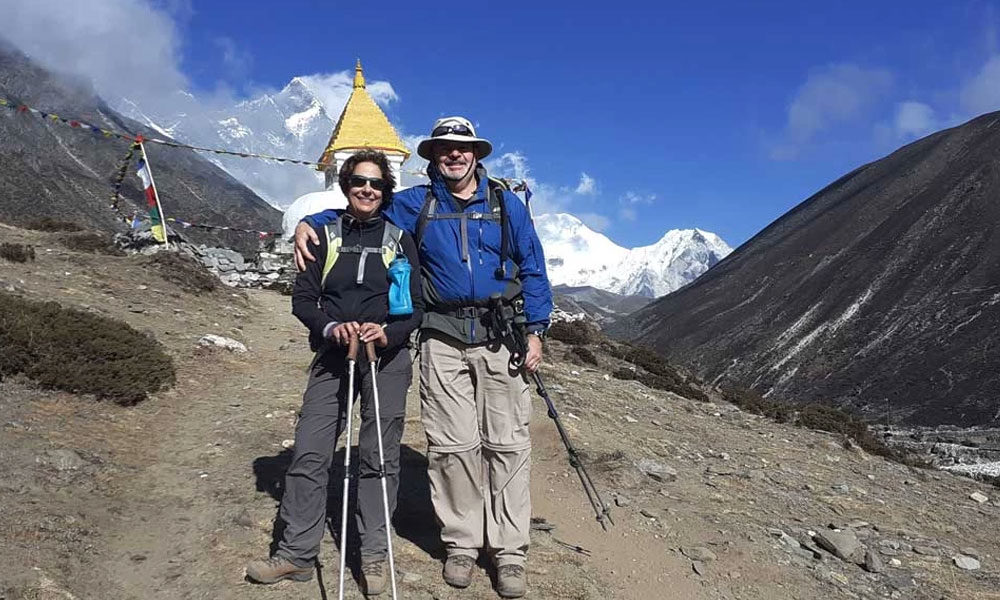
Similarly, for the elderly trekkers who want to explore the magnificence of the Khumbu region, although there is no exact age limit for the expedition, various factors like physical fitness, their overall health conditions, experience with high altitude trekking and acclimatization process come into play.
Considering the challenge and difficulty level of this high-altitude adventure, it may seem like it is an unachievable dream for people above the age of 60. But, in the past, even trekkers as old as 70 years old have successfully completed the Everest Base Camp trek. So, the success rate for the trek, rather than age, which is just a number, depends on the physical prowess, capabilities, and health condition of a person.
If you are confident you can do this trek and have some prior experience with the acclimatization process, consult your physician and experienced trekking guide whether you are in the condition for the adventure or not. It is suggested that you should at least have a mid-range of fitness level and start training at least 8-12 weeks prior to trek if you haven’t been physically active for a while.
Furthermore, bring supportive hiking tools, especially hiking poles, which will be a great support to you; they take the burden off your knees, supporting a firm footing at the same time during your exploration.
Note: It will be best to trek during the peak seasons if you are traveling with children or elders in your trekking team. The weather during peak seasons like spring (March, April, and May) and autumn (September, October, and November) are stable and warmer, with much more suitable conditions for the acclimatization process.
Private and Group Expeditions for Everest Base Camp Trek
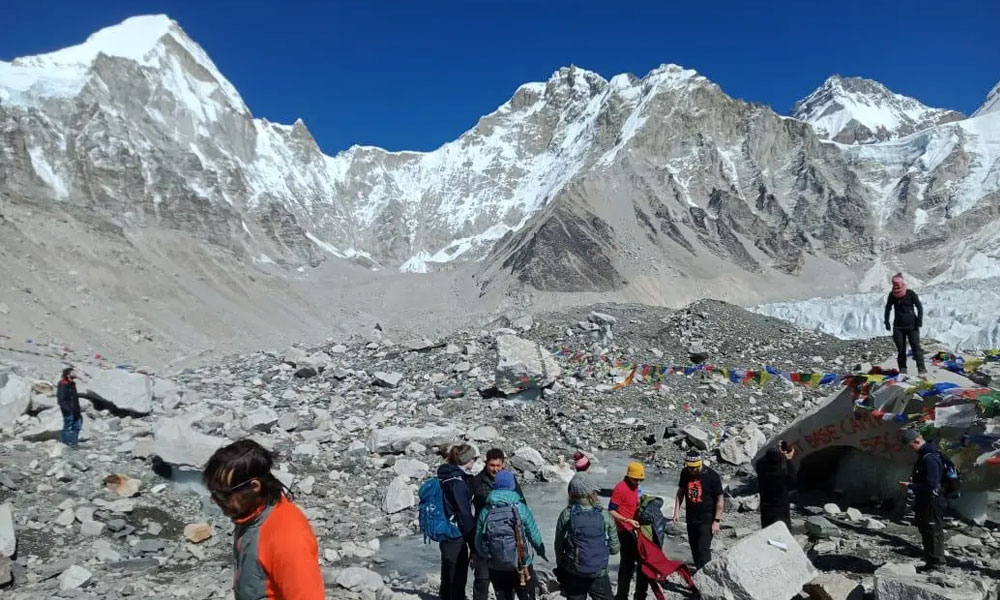
If there is any elderly member or children in your trekking team to the Everest Base Camp, you can consider both private and group trekking to the base camp. Generally, group tours are the classical trekking style where the trekking enthusiasts, either individuals or small groups, are put together to form an ideal trekking expedition team.
Then, the trekking team follows a specific set of itineraries, bonding overtime during the journey. Typically these packages are ideal if all the members have a good physical fitness level and good health conditions. These group expeditions are also more cost-efficient than the private expedition.
The group trekking package will be most convenient if your expedition team has children and elderly members on it. But you can’t expect things to always go your way.
Thus, if you are traveling with children and the elderly, especially as a family, a private expedition to the Everest Base Camp will be the ideal choice. While the group tours have a specific set of itineraries and a certain time frame to complete, usually 12-14 days, you can take it easy with the private tours. Considering the level of younger and elderly members of your team, you can go as slow or as fast as you want.
Moreover, you can also add the number of acclimatization you want, you don’t need to follow the quick-paced footsteps of the younguns; just relish the heavenly beauty of the Himalayas at your own pace considering the physical ability of the elderly and children member of your team.
Private expeditions can be extended 16-18 days or more, covering less distance each day and utilizing more acclimatization days. And if you want to shorten the trek, do check out our most recommended package- Short Everest Base Camp Trek which allows you to gather all the thrills and experience of the EBC trek in just 10 days!
Tips for Trekking With Children and Elderly
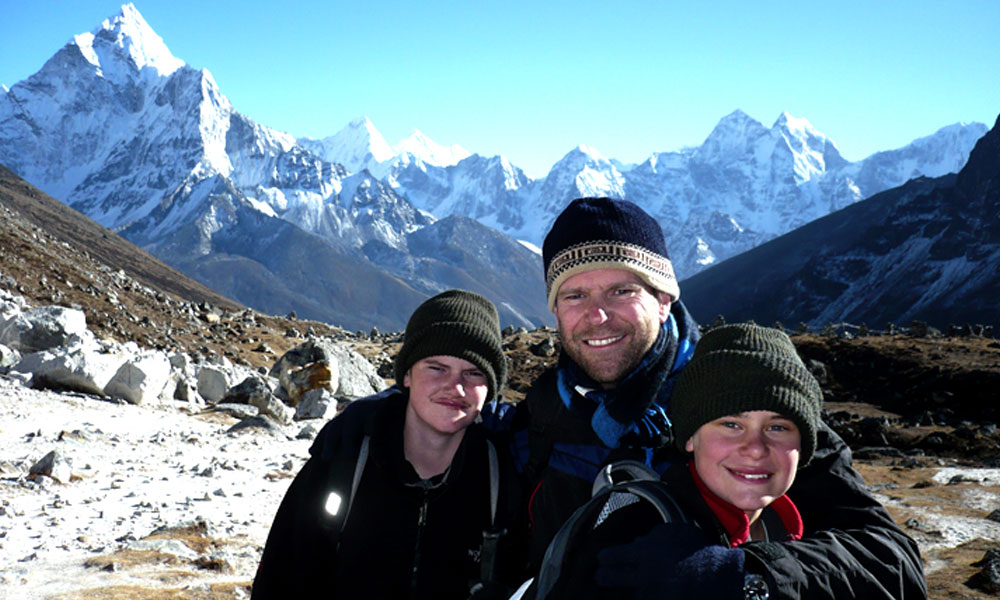
- Physical preparation isn’t an option; start at the recommended period prior to the trekking
- Keep everyone hydrated throughout the trek, it is the best way to prevent altitude sickness
- Bring water bottles and thermos
- Use Diamox, it is a medication that works best to prevent altitude sickness but consult with a physician before using
- Choose the package with slightly long itinerary plans, it's best to enjoy a slow-paced adventure that won’t take a toll on anybody
- Always make your children break in the hiking boots prior to the expedition
- Stay within the luggage weight limit or hire extra porters to carry your children and elderly member’s baggage
- Bring board games or an entertainment set helps you keep your children occupied
- Take care of their toiletries and personal supplies
- Make sure they are eating well and not being too picky; a nutritious and balanced diet is essential for a long day’s trek
- Pack extra batteries and portable chargers
- Don’t forget snacks
Get Insights On:

